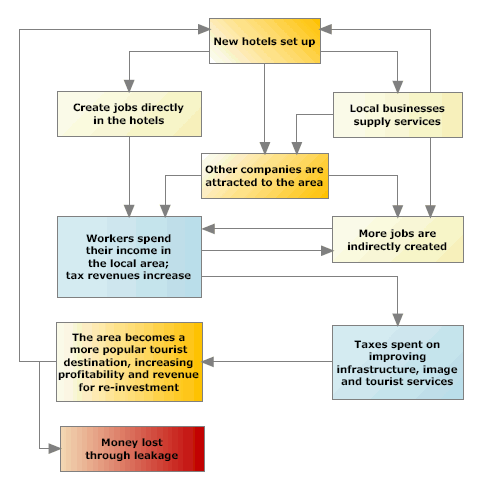Tourism Multiplier Effect
Tourism not only creates jobs in the tertiary sector, it also encourages growth in the primary and secondary sectors of industry. This is known as the multiplier effect which in its simplest form is how many times money spent by a tourist circulates through a country's economy.
Money spent in a hotel helps to create jobs directly in the hotel, but it also creates jobs indirectly elsewhere in the economy. The hotel, for example, has to buy food from local farmers, who may spend some of this money on fertiliser or clothes. The demand for local products increases as tourists often buy souvenirs, which increases secondary employment.
The multiplier effect continues until the money eventually 'leaks' from the economy through imports - the purchase of goods from other countries.
|
The Tourist Multiplier Effect
Click The Tourist Multiplier Effect for a non-animated image |

